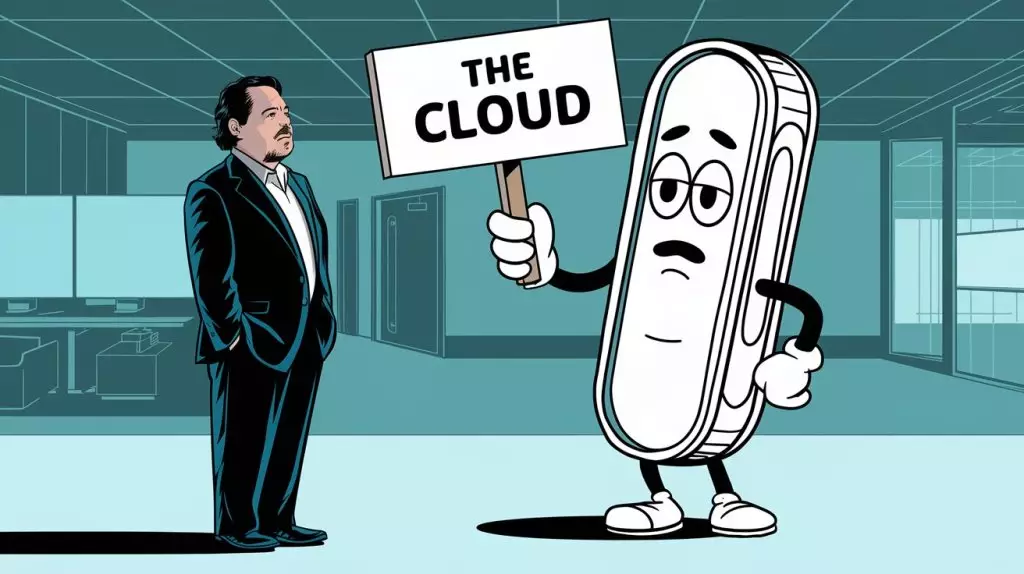In the rapidly evolving landscape of artificial intelligence (AI), few names stand out as prominently as that of Marc Benioff, the co-founder and CEO of Salesforce. His recent critique of Microsoft’s AI assistant, Copilot, serves as a stark reminder of the competitive atmosphere that surrounds AI innovations. With claims that Copilot is “disappointing” and reminiscent of the notorious Clippy, Benioff’s remarks raise important questions about the effectiveness and actual value of AI tools within the business ecosystem.
Benioff’s critique is deeply entwined with his role at Salesforce, a company that directly competes with Microsoft’s suite of business solutions, namely Dynamics 365. Given this competitive backdrop, his comments may appear motivated more by corporate rivalry than by an objective assessment of AI technology. Drawing parallels between Microsoft’s Copilot and Clippy, which had a mixed reception when it first launched in 1996, hints at Benioff’s frustration with the contemporary AI offerings that may not be meeting user needs as expected. Clippy, intended to assist users in navigating Microsoft Office, quickly became perceived as more of a nuisance than an aid, suggesting a long history of underwhelming virtual assistants.
Microsoft’s Copilot was introduced as a cutting-edge solution powered by OpenAI’s advanced GPT models, promising to enhance productivity across various platforms, especially within Microsoft Office 365. With upgraded features including vision capabilities and human-like voice interactions, the tool was envisioned as a leap forward in making AI harness the potential of assisting human activities in real-time. However, Benioff’s assessment that it “doesn’t deliver any level of accuracy” forces a reevaluation of whether the new updates genuinely address earlier shortcomings or simply layer on more complexity without enhancing the user experience.
Interestingly, Benioff’s critique of Microsoft’s tool runs parallel to his perspective on the broader AI landscape, which he has described as “oversold.” His assertion that AI is not yet solving monumental challenges—such as cancer or climate change—highlights a certain skepticism about the real impact of current technologies. His perspective is intriguing considering that, as a proponent of AI, he has invested in creating innovative tools within Salesforce, such as the new enterprise AI agent builder, Agentforce. This duality in Benioff’s viewpoint signals a complex understanding of the capabilities and limitations of AI at this stage in its evolution.
Benioff’s stance might reflect a growing consensus among industry leaders regarding the necessity for AI tools to demonstrate tangible and beneficial results. As organizations increasingly integrate AI into their operations, the pressure mounts on AI developers to ensure these tools not only function correctly but also provide significant value to their users. This competitive urgency could spur innovations that push AI development in new, user-friendly directions.
Moreover, as Benioff engages with the narratives surrounding generative AI, his observations contribute to a broader conversation about the need for discerning consumers and companies. In a market flooded with claims and bold predictions, vigilance and critical assessment will likely differentiate successful implementations from mere gimmicks.
The ongoing dialogue surrounding AI—fuelled by criticisms like those from Benioff—intensifies the scrutiny with which such technologies are viewed. As the stakes rise in the race for AI supremacy, tech giants will need to remain attentive to user feedback and continuously evolve their offerings. The future may see a more refined AI landscape, where tools like Copilot are molded by constructive criticism. For now, as Salesforce champions its innovations, the question remains whether customers will be swayed by Benioff’s criticisms or whether Microsoft will recalibrate Copilot to more effectively meet user expectations. Ultimately, the interplay between these rival firms will significantly shape the future of AI in business, and it’s a narrative worth following closely.


Leave a Reply